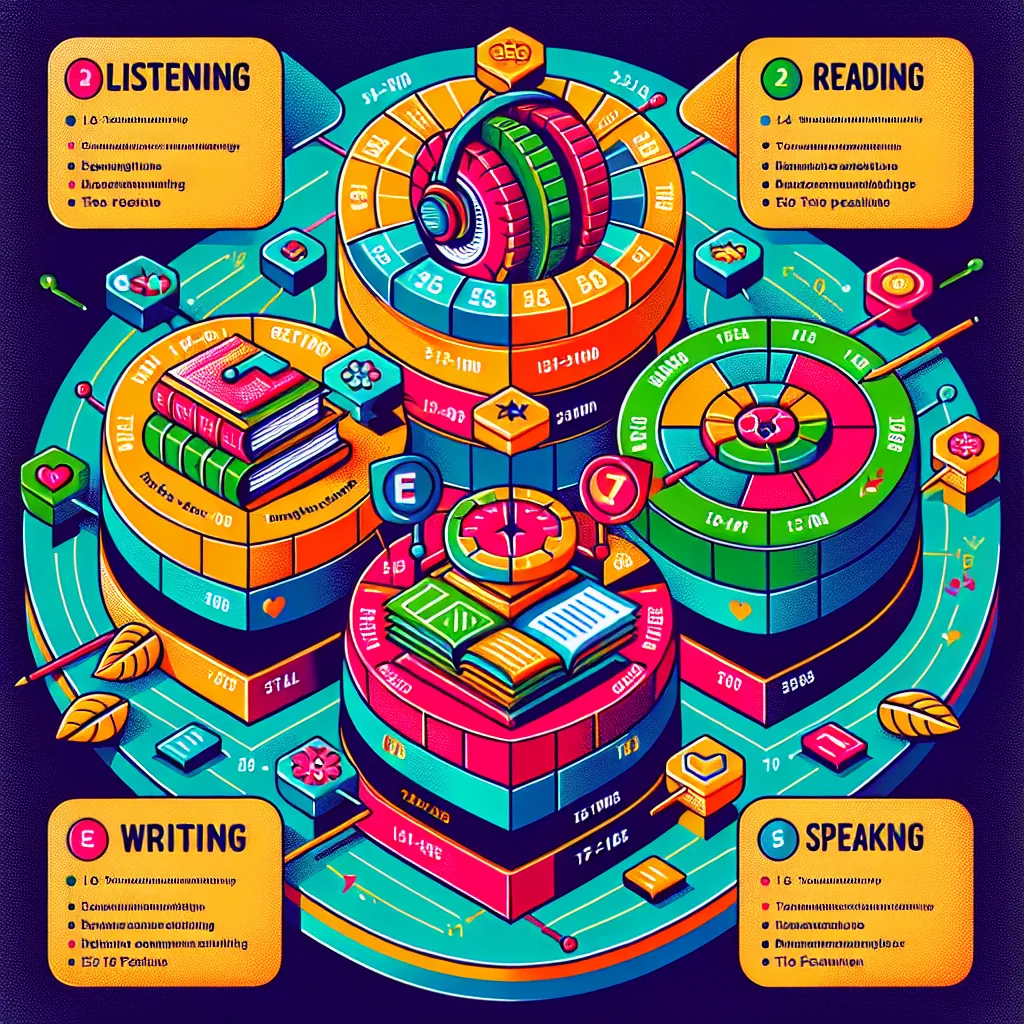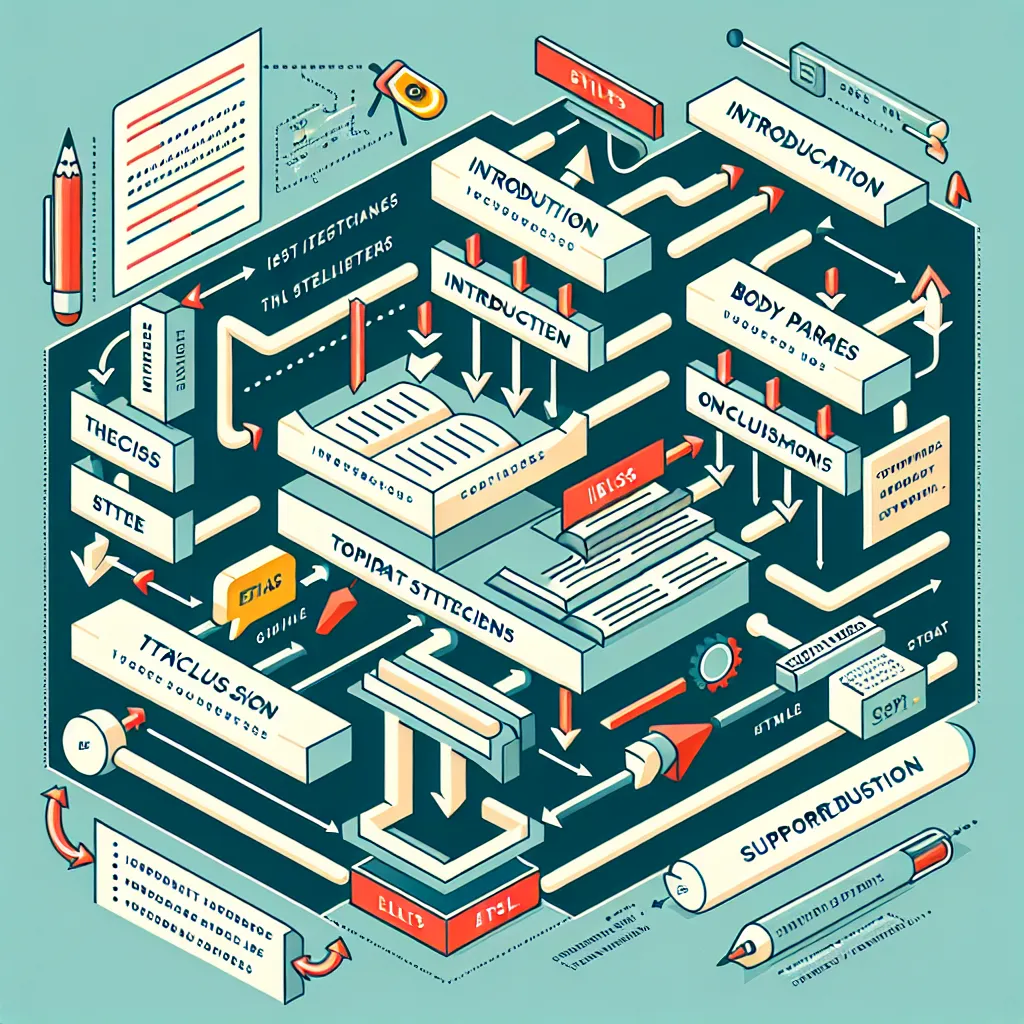Are you a beginner looking to ace the IELTS exam? You’ve come to the right place! This comprehensive guide will walk you through the best IELTS preparation strategies, helping you build a solid foundation for success. Whether you’re aiming for academic or general training, these tips will set you on the right path.
Understanding the IELTS Exam
Before diving into preparation strategies, it’s crucial to understand what the IELTS exam entails. The International English Language Testing System (IELTS) assesses your English language proficiency across four key skills: Listening, Reading, Writing, and Speaking. Each section presents unique challenges, and a well-rounded preparation approach is essential for success.
 IELTS Exam Overview
IELTS Exam Overview
Creating a Solid Study Plan
Set Realistic Goals
Begin by setting clear, achievable goals. Determine your target IELTS score based on your current proficiency level and the requirements of your desired university or organization. This will help you tailor your preparation efforts effectively.
Establish a Study Schedule
Consistency is key in IELTS preparation. Create a study schedule that allocates time for each skill area. Aim for at least 2-3 hours of focused study daily, ensuring a balance between all four sections of the test.
Utilize a Variety of Study Materials
Diversify your study materials to cover all aspects of the exam:
- Official IELTS practice tests
- IELTS preparation books
- Online resources and apps
- English language podcasts and news articles
- Grammar and vocabulary workbooks
Developing Essential Skills
Enhance Your Listening Skills
- Practice with a variety of accents (British, American, Australian, etc.)
- Listen to English podcasts, news broadcasts, and TED Talks
- Take detailed notes while listening to improve concentration
Improve Your Reading Speed and Comprehension
- Read diverse English texts daily (newspapers, academic journals, novels)
- Practice skimming and scanning techniques
- Time yourself while completing practice reading tests
Refine Your Writing Skills
- Learn the structure for both Task 1 and Task 2 essays
- Practice paraphrasing and summarizing information
- Familiarize yourself with common IELTS writing topics
- Seek feedback on your essays from teachers or language exchange partners
Boost Your Speaking Confidence
- Record yourself speaking on various topics
- Practice with a language exchange partner or join IELTS speaking groups
- Familiarize yourself with common IELTS speaking topics
- Work on fluency, pronunciation, and expanding your vocabulary
Effective Study Techniques
Use the Pomodoro Technique
Break your study sessions into 25-minute focused intervals, followed by short breaks. This method helps maintain concentration and prevents burnout.
Implement Active Recall
Instead of passive reading, engage with the material by summarizing key points, creating flashcards, or teaching concepts to others.
Utilize Spaced Repetition
Review material at increasing intervals to reinforce long-term memory retention, especially useful for vocabulary and grammar rules.
Common Pitfalls to Avoid
Don’t Neglect Any Section
Ensure balanced preparation across all four sections. Many beginners focus too heavily on one area at the expense of others.
Avoid Last-Minute Cramming
Consistent, long-term preparation is far more effective than intense, short-term studying. Start your preparation well in advance of your test date.
Don’t Rely Solely on Translation
Try to think in English rather than translating from your native language. This improves fluency and reduces errors.
Leveraging Technology for IELTS Prep
Mobile Apps
Utilize IELTS-specific apps for on-the-go practice:
- IELTS Prep App
- IELTS Word Power
- IELTS Skills
Online Practice Tests
Take advantage of online platforms offering full-length IELTS practice tests with automated scoring:
- IELTSOnline
- Road to IELTS
- IELTS.org Practice Materials
Language Exchange Platforms
Connect with native English speakers or fellow IELTS aspirants for speaking practice:
- Tandem
- HelloTalk
- IELTS Speaking Practice Groups on social media
 IELTS Preparation Tools
IELTS Preparation Tools
Monitoring Your Progress
Regular Self-Assessment
Take full-length practice tests under timed conditions every 2-3 weeks to gauge your improvement and identify areas needing more attention.
Keep a Progress Journal
Document your scores, strengths, and weaknesses. This helps you track your journey and stay motivated.
Seek Professional Feedback
Consider enrolling in an IELTS preparation course or working with a tutor for personalized guidance and feedback.
Next Steps: Building on Your Foundation
Once you’ve implemented these strategies and feel comfortable with the basics:
- Focus on advanced vocabulary and complex grammatical structures
- Practice with more challenging materials, such as academic journals or technical reports
- Participate in English debates or discussion groups to enhance critical thinking skills
- Consider taking a mock IELTS test under exam conditions to simulate the real experience
Conclusion
Embarking on your IELTS preparation journey as a beginner can seem daunting, but with the right strategies and consistent effort, success is within reach. Remember, the key to excelling in IELTS lies in a balanced approach, addressing all four skills while building your overall English proficiency. Start implementing these strategies today, and you’ll be well on your way to achieving your desired IELTS score.
We’d love to hear about your IELTS preparation experiences! Share your tips, challenges, or questions in the comments below. And don’t forget to check out our other articles on specific IELTS skills and strategies for more in-depth guidance. Happy studying!




